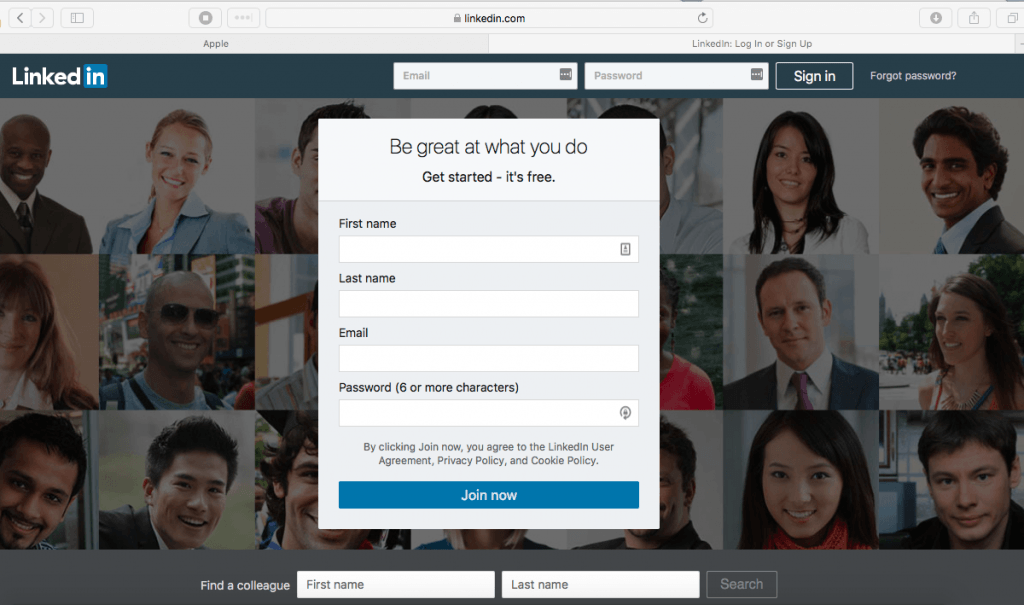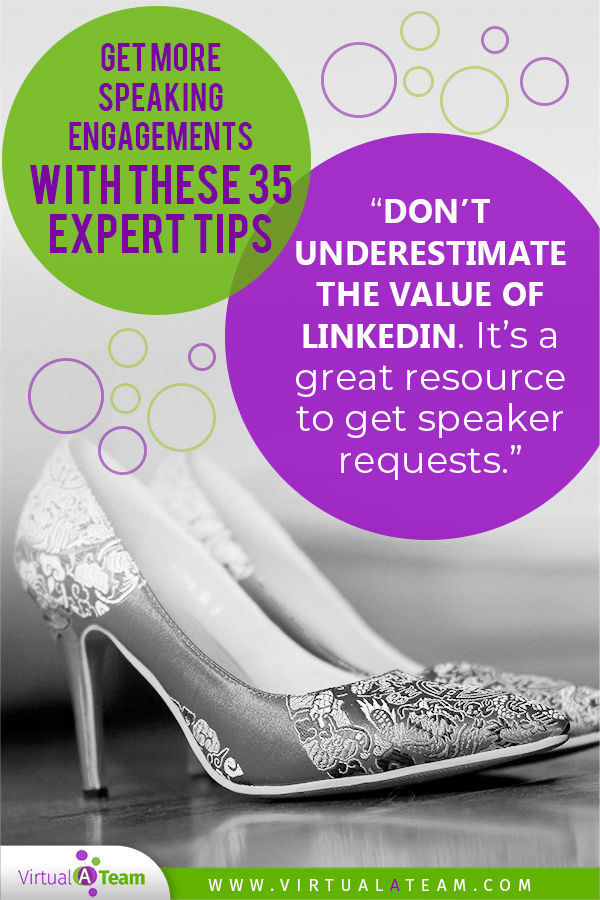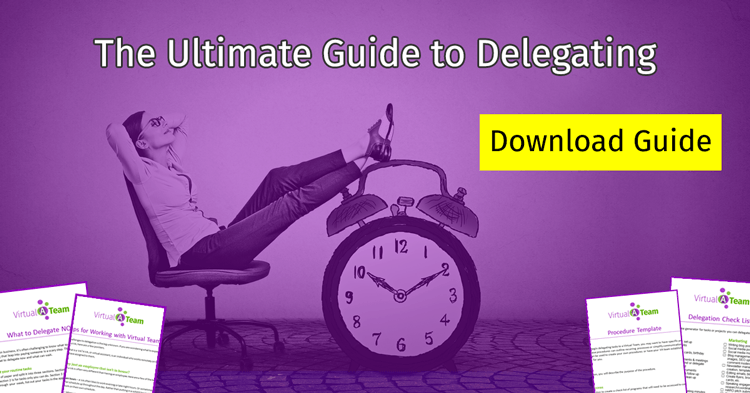I remember when I first launched my coaching business. I understood the importance of building my reputation around the skills I was coaching . A fast way to do that was to get in front of large groups of people at one time. This meant becoming a speaker and getting booked as a speaker.
Fortunately, I didn’t have a fear of public speaking (in fact, I actually really LOVE to speak in front of groups). What I did struggle with was how to get on enough stages.
Getting booked as a speaker wasn’t always easy. However, there are some great tips that can help. I’ve brought together some of my favorite speakers to share their wisdom.
Before You Start to Look
Before you even begin getting booked as a speaker, there are some important things to consider. These things will make the searching that much easier.
1) Josie Tytus - Website | Facebook
Decide what you are going to be known for and run with it. Too many speakers are all over the board with their messaging. Those who hire speakers want to know they are hiring a genuine Expert or Leader in that domain. If you're a relationship coach, talk about the value and the ROI of building strong relations and develop a body of work in that area. Don't start teaching people how to start and run a business because it's something you've done. The stronger your claim to an area of expertise, the more likely you will be the one that gets hired.
2) Sorana Blackfoot - Website | Facebook
Being a non-fiction author (best-selling gives you an extra point) can be an advantage, when people can learn about your knowledge and expertise.
3) Jan Elliot - Facebook
Pretend you are being interviewed by Oprah. You may answer her by saying, well, Oprah, the real problem is that women today (fill in the blank) and what I have found is (fill in the blank). That's your topic. Put the problem and the solution in the tile headline with a sub-headline.Grab their attention. Also, send a beautiful over-sized envelope with perfect return label, quality where even the stamp looks good), It is almost guaranteed to be opened. It contains your speaker sheet, intro letter, whatever you want to include. Keep it simple. Clean and gorgeous!
4) Meshell R Baker - Facebook
Begin with WHY. Asking yourself WHY the audience will benefit from your talk is an essential and foundational question.
I hear a lot of people talking about how speaking will build “their” business’ and client rosters; yet I rarely hear people talking about WHY their talk is impactful or helpful.
Bonus Tip:
- Event coordinators will often check out your website. If your website isn’t focused on your speaking topics, there will be a disconnect and you may lose a potential booking.
Finding Places to Speak
1) Felicia Slattery - Website
One of the easiest places to find events to speak at in your community is Meetup.com. Search your area using the type of audience members you're looking for. For example, if you speak to entrepreneurs search entrepreneur, small business, start up, and work at home. You'll find a bunch of groups and right through the MeetUp platform you can contact the meeting planner. Tell them your topic title and the bullet point description of your presentation and what the audience will take away. You'll be turning away bookings!
2) Sorana Blackfoot - Website | Facebook
Getting involved in the local and national groups that target the niche market you serve or want to serve, can help build the relationships with the leaders in the group and also open opportunities to address the group at meetings.
3) Gloria Monteleone Kovac - Website | Facebook
I speak at many events and Conferences and find a great way to make a connection is by researching the type of events and audiences you would like to share your expertise with. Asking other trusted entrepreneurs what events they go to and enjoy...and that deliver quality content is a good start. I then try to attend the event/Conference and make connections with the people that are organizing/presenting the event.
4) Diane Halfman - Website | Facebook
Connect with one or more other speakers that share the same ideal client as you. Share where each of you have spoken and the results to weed out or praise great places to speak.
5) Rachel Elise Trimble - Website | Facebook
Being really consistent on social media has opened up many doors. Doing FB Lives is like a preview for what they can expect.
6) Dawn C Reid - Website | Facebook
Create and promote your own opportunities for speaking at libraries and coffee shops, partner with others, reach out to civic and faith-based organizations and let them know you are interested in being on their speaker's list. For example, I do a monthly recorded talk with guests. I also do international cruises, vendor fairs, and conferences. I am always looking for experts and other speakers. These are great ways to build your speaking opportunities. I am happy to work with you on creating a speaking opportunity strategy to get you in front of the "right" people and getting you paid to speak. Just inbox me if you want to talk to me.
7) Christine Gallagher - Facebook
Don’t forget to “work” your connections. Many times my own speaking gigs came about because I reached out to people I knew were part of certain organizations.

Bonus Tips
- Don’t underestimate the value of Linkedin. If you optimize your Linkedin profile as a speaker, you may find that you receive speaker requests from event coordinators searching for speakers in your area.
- There are tons of speaker’s bureaus out there. Find one or two that you can get listed on. Do your homework first, though. Not all speakers’ bureaus are created equal.
- Research trade associations and local organizations.
- Do an internet search for Call for Speakers.
Getting the Booking
1) Terra Bohlman - Website
Research the event's target market so you can customize your offer to speak. For example, if you know the room will be full of working mothers, change your talk title to include them. When you reach out to the event coordinator, let him/her know how you can provide value to their audience with your suggested speaking topic using this simple script:
Hi <first name>, I saw that you are hosting an event on <date> and would love to serve your audience as your speaker if you have not secured one yet. A topic that comes to mind is "5 Work-Life Balance Secrets That Work for Modern Moms." If this feels like a fit for you, let me know and we can chat for 5 minutes on more details.
2) Amy Cochran Westbrook - Website | Facebook
Make it easy on the group. Have a short bio, topics and takeaways, and headshot ready to send. (Have your Speaker One Sheet ready to send.) You can Google "speaker one sheet" for some great visual examples.
3) Karen Joy Fritz - Website | Facebook
Offer copies of your book (if you're allowed) but don't discount them! Say you'll donate the amount of a discount to the group's preferred charity. Maintains the value of your book AND gives them an incentive to take one home.
4) Debbie Page - Website | Facebook
Determine and confirm that the organization/association or company you are pitching to has the problem/challenge you are uniquely qualified to solve. Pitching the wrong solution won’t help your reputation.
5) Gloria Monteleone Kovac - Website | Facebook
An introduction from someone often goes a long way. Keeping your initial conversation short is best as they are most likely focused on the event at that time. Suggest a conversation for the following week to discuss the opportunity for you to be a Speaker at their next event. At that point...be prepared to send them whatever information they may need...Speaker Sheet, sizzle reel, testimonials, etc. Make it clear you are interested in serving their audience in any way you can.
6) Kay Miller - Facebook
Offer an add-on workshop (such as the day before) where they can charge and earn non-dues revenue (whatever is left after they pay you).
7) Deborah Bateman - Website
Often, when a client is strapped with a lean event budget or is unable to pay my stated speaking fees, I will create a payment plan and/or barter part of the fee.
Payment Plans:
If immediate funds are short, I will accept my speaker fee in installments. Normally 50% in payable prior to the event, and the other 50% payable on the day of the event.
Bartering:
Most often, I will trade for a sponsorship or membership in their organization. I see this as a win-win, as it provides me with the added boost and exposure to the audience and creates goodwill. In addition, I have traded for resources that are tradable, things like hotel stays, spa treatments, or exhibitor products. When doing the later, I just make sure that they are commodities that I will use or can give as a gift.

7) David Cooke - Website
Have a professional videographer capture you speaking to a large group. Capture a five to eight minute segment of that talk you can share.
8) Gelie Akhenblit - Website
The reason I was asked to present is b/c I'm an expert in the ONE thing (networking) and then people would see me in the audience and book me for other organizations. It was an entire Snowbowl effect.
9) Kelsa Dickey - Website | Facebook
We reach out using a video message. Most meeting planners are bombarded with emails so we stand out this way!
Bonus Tips:
- Use Twitter or Instagram to connect with the event coordinators. Often they will check direct messages on these platforms while they may not notice an email.
- Make the event coordinator’s job as easy as possible. Have a form or document to gather all the details needed for the event. Touch base with them instead of expecting them to always be in contact with you.
- Going for paid events? Never tell the event coordinator what your speaker fees are. Instead, ask what their budget is. There are situations where you might get paid more than you ever have.

Getting Referrals
Sometimes what you do at one speaking event will help you get additional bookings in the future.
1) Debbie Page - Website | Facebook
Have 3 clear and key take aways and immediate actions that can be implemented. While the solution is likely long term, showing how the audience/participants can take something and apply it immediately for a positive step goes a long way in separating you from the competition.
2) Kricket Cody Harrison - Website | Facebook
Make sure everything in the talk is for the audience. Your stories should pull the audience in so that they can relate to your content.
Finally, it’s easier to get booked (and paid) when you are well-practiced, not memorized. Speaking is a craft that must be worked on. The best of the best, in anything, are always honing their craft.
3) Debi Silber - Website | Facebook
Start with the intention that it's ALL about the audience and not about the speaker. It's not what you know but how you'll take what you know to inspire and empower those who need a nugget of info you have to share. Come from a place of service, overdeliver and have the event planner jumping for joy that they chose you and your message for their event and tribe 🙂
Bonus Tips:
- Ask event coordinators for testimonials and referrals. You can even add these contingencies into speaker contracts.
- Live stream parts of your presentation. Just be sure to ask permission from the event coordinator first. This helps others see what you are up to.
- Video tape attendee testimonials to use in future marketing efforts.
There are a lot of moving parts to becoming a speaker. This holds true whether you are doing it for free, to get exposure to new audiences, or getting paid. Regardless, doing it all on your own can be super time consuming and overwhelming. You certainly can:
- Get your speaker media kit ready,
- Research speaking opportunities,
- Contact event coordinators,
- Follow up as necessary,
- Prepare your slides or presentation,
- Show up,
- And finally, follow up with all of your new prospects and the event coordinator…
Or, you can delegate much of this work out to a virtual assistant. And, if you truly want to avoid the headaches of managing your own virtual teams, you can look to hire Virtual A Team instead.




